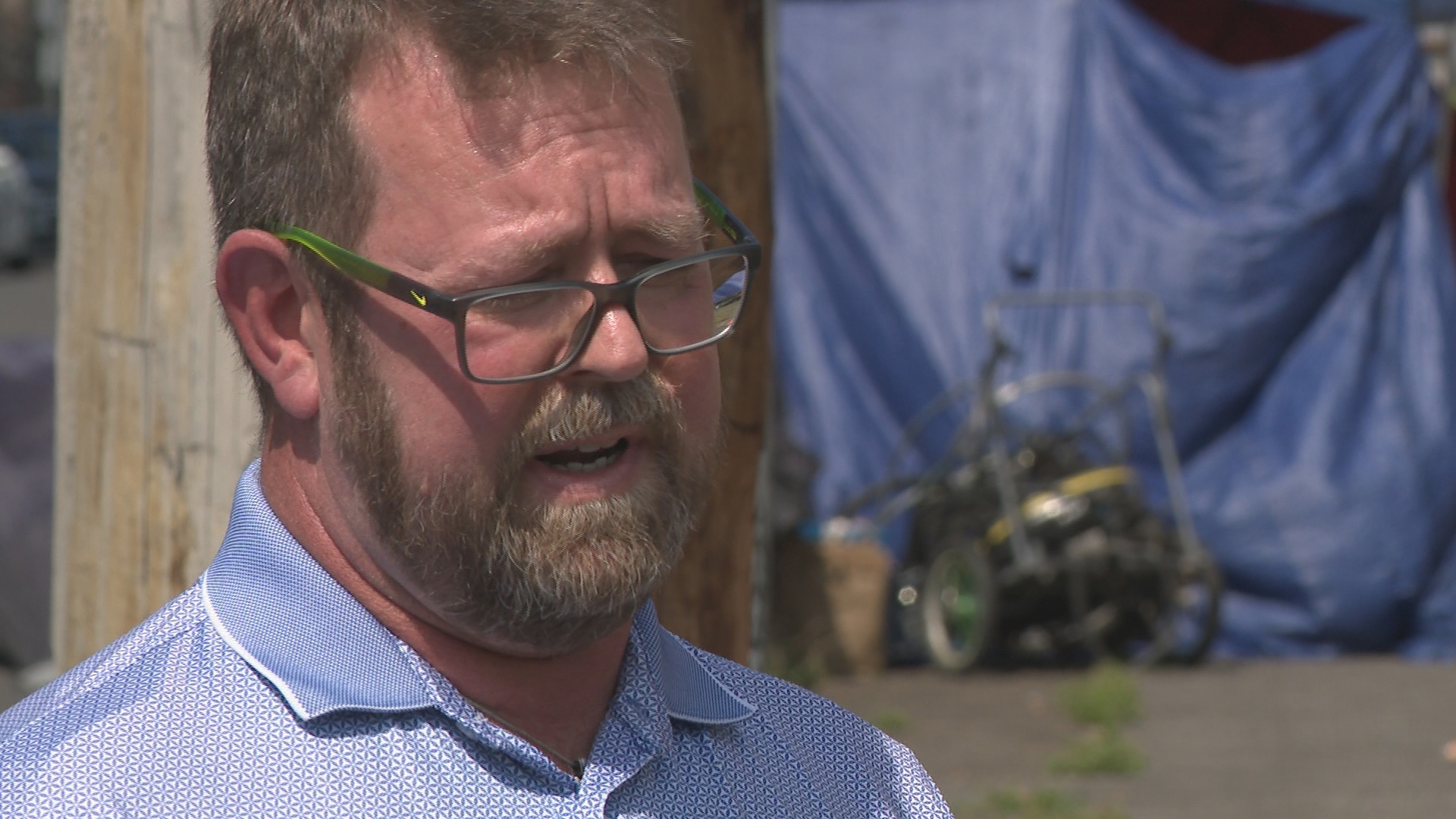PORTLAND, Ore. – A long-standing Central Eastside business is voicing frustration after a homeless encampment took over sidewalks and parking spaces outside its storefront, leaving employees with fewer safe options and highlighting Portland’s ongoing struggle to balance business needs, public safety, and the rights of unhoused residents.
Parking Costs Rise as Spaces Disappear
For nearly four decades, Contract Furnishings Mart, located at Southeast 9th Avenue and Ash Street, has operated in Portland’s Central Eastside. Store manager Patrick Vonpegert says he budgets more than $2,000 annually for six employee parking permits issued by the Portland Bureau of Transportation (PBOT).
This year, the cost of those permits rose to $2,370. According to PBOT, the increase helps fund litter collection and road safety projects throughout the Central Eastside. But Vonpegert says that while his business pays more, his staff no longer has consistent access to the spots they need.
Also Read
“It’s difficult to justify paying that much money when you can’t park a car next to your building,” Vonpegert said. “They are taking up areas that we’re paying for.”
PBOT responded that the permits cover access to roughly 1,600 spaces citywide — not specific spots outside any one business. But for Vonpegert, the issue is about proximity and practicality: employees need to park nearby, not blocks away.
A Tense Exchange of Perspectives
Outside Contract Furnishings Mart, several parking spots and sections of sidewalk are now occupied by tents. One of the people camping there, who identified herself only as Elizabeth, acknowledged the tension but questioned the outrage.
“Us people on the streets, we have a different mindset — we just want to get our drugs and spend time with each other,” she said. “Why are you getting mad about the money that you paid for a parking spot? An empty parking spot?”
Vonpegert countered that the encampment creates safety risks for employees and customers, discouraging people from parking near the store.
“There’s no repercussions if they should break into the car. Having someone there all day long … it doesn’t feel safe,” he said.
Elizabeth, candid about her fentanyl addiction, admitted that fears around theft and unpredictable behavior are not unfounded. “People that are working and that don’t get high … do fear the homelessness. And they will rob and they will steal and they can’t control themselves sometimes,” she said.
Accessibility Challenges
The camp also creates accessibility barriers for one of the store’s employees, who uses a wheelchair. Vonpegert said the staff member often must navigate around tents or travel several blocks out of the way just to reach the entrance.
“He’ll sometimes get blocked and have to go back a block and a half to cross over back to where he needs to go,” Vonpegert explained.
The situation touches on a broader legal issue. The City of Portland is under a settlement agreement from a lawsuit alleging violations of the Americans with Disabilities Act (ADA), which requires the city to ensure sidewalks remain accessible. The agreement obliges the city to assess reported sites within five business days.
City Response and Removal Timeline
Vonpegert reported the camp twice this week, though he said city response has been slow. On Thursday, city officials confirmed they had assessed and posted the site for removal. A spokesperson said it would be cleared sometime next week.
“This is a challenging situation and one that is, understandably, frustrating for neighbors affected by the camp at SE 9th and SE Sandy,” the city’s Portland Solutions department said in a statement. “We have a process in place that prioritizes the most impactful camps … but the process takes some time. We appreciate patience and understanding from the community.”
Elizabeth, however, expressed little concern about the city’s enforcement. “That’s fine,” she said. “We can exist anywhere, any place and time.”
Larger Context: Addiction and Services Nearby
The camp sits across the street from the Coordinated Care Pathway Center, which offers sobering services and diversion programs for individuals caught with drugs. Instead of jail time, participants are directed toward treatment and support.
Despite struggling with addiction, Elizabeth said she has no interest in enrolling. “Why would I want to become part of normal society, so I can complete counseling and treatment just to … be in a cell of life,” she said.
Her comments reflect the uphill battle faced by outreach workers trying to connect Portland’s unhoused population with services — a dynamic that often frustrates nearby businesses who feel the city is not doing enough.
Business Impact and Frustration
For Vonpegert, the standoff illustrates the daily realities businesses face in Portland’s Central Eastside. Beyond rising costs and fewer usable parking spaces, he said safety concerns, accessibility issues, and lack of timely enforcement make it harder for companies to remain committed to the district.
“It’s not easy to take care of situations where there are multiple sides to look at,” he said. “But you have to understand businesses in downtown Portland are really being challenged to stay in the area.”
Looking Ahead
The city’s removal crews are expected to address the camp next week, though it remains unclear how long-term solutions will be implemented in the Central Eastside. Advocates stress that without adequate shelter beds, mental health care, and addiction treatment, camps will continue to resurface even after removals.
For now, business owners like Vonpegert and residents like Elizabeth embody the ongoing conflict playing out on Portland’s streets — a collision of economic pressures, addiction crises, and the city’s effort to manage homelessness while keeping sidewalks, streets, and businesses accessible.












